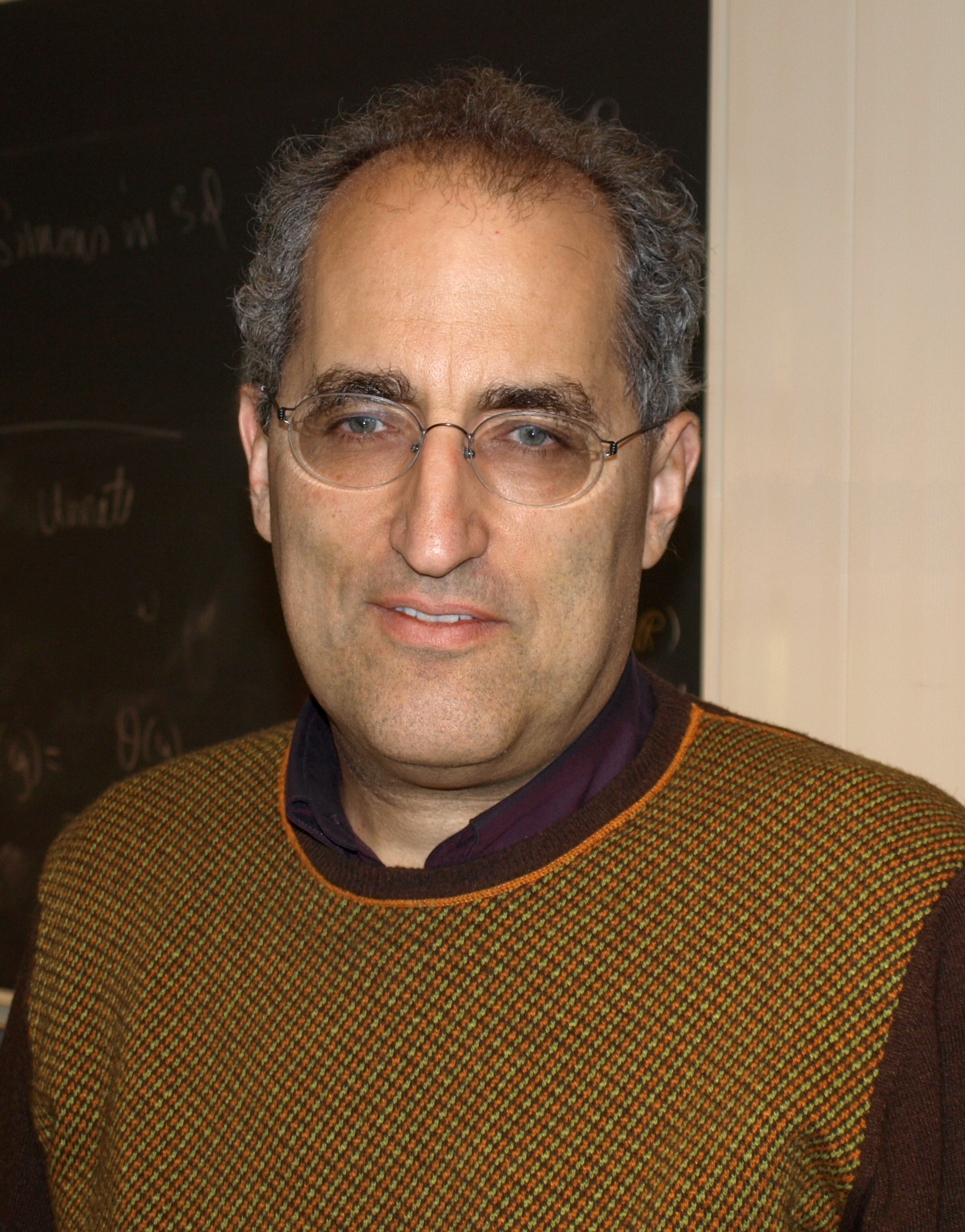Эдвард Виттен цитаты
Эдвард Виттен: Цитаты на английском языке
"Edward Witten" interview, Superstrings: A Theory of Everything? (1992) ed. P.C.W. Davies, Julian Brown
"Edward Witten" interview, Superstrings: A Theory of Everything? (1992) ed. P.C.W. Davies, Julian Brown
Контексте: Quantum mechanics... developed through some rather messy, complicated processes stimulated by experiment. While it's a very rich and wonderful theory, it doesn't quite have the conceptual foundation of general relativity. Our problem in physics is that everything is based on these two different theories and when we put them together we get nonsense.
"Edward Witten" interview, Superstrings: A Theory of Everything? (1992) ed. P.C.W. Davies, Julian Brown
Контексте: It's been said that string theory is part of the physics of the twenty-first century that fell by chance into the twentieth century. That's a remark that was made by a leading physicist about fifteen years ago.... String theory was invented essentially by accident in a long series of events, starting with the Veneziano model... No one invented it on purpose, it was invented in a lucky accident.... By rights, string theory shouldn't have been invented until our knowledge of some of the areas that are prerequisite... had developed to the point that it was possible for us to have the right concept of what it is all about.
“String theory is extremely attractive because gravity is forced upon us.”
as quoted by Michio Kaku, Hyperspace: A Scientific Odyssey Through Parallel Universes, Time Warps, and the 10th Dimension (1995)
Контексте: String theory is extremely attractive because gravity is forced upon us. All known consistent string theories include gravity, so while gravity is impossible in quantum field theory as we have known it, it is obligatory in string theory.
"Edward Witten" interview, Superstrings: A Theory of Everything? (1992) ed. P.C.W. Davies, Julian Brown
Контексте: I think one has to regard it as a long term process. One has to remember that String theory, if you choose to date it from the Veneziano model, is already eighteen years old... that quantum electrodynamic theory towards which Planck was heading [in 1900], took fifty years to emerge.
"Edward Witten" interview, Superstrings: A Theory of Everything? (1992) ed. P.C.W. Davies, Julian Brown
Контексте: In Newton's day the problem was to write something which was correct - he never had the problem of writing nonsense, but by the twentieth century we have a rich conceptual framework with relativity and quantum mechanics and so on. In this framework it's difficult to do things which are even internally coherent, much less correct. Actually, that's fortunate in the sense that it's one of the main tools we have in trying to make progress in physics. Physics has progressed to a domain where experiment is a little difficult... Nevertheless, the fact that we have a rich logical structure which constrains us a lot in terms of what is consistent, is one of the main reasons we are still able to make advances.
"Edward Witten" interview, Superstrings: A Theory of Everything? (1992) ed. P.C.W. Davies, Julian Brown
Foreward, written June 30, 1999, to Supersymmetry: Unveiling the Ultimate Laws of Nature (2000) by Gordon Kane
as quoted by K.C. Cole, "A Theory of Everything" New York Times Magazine (1987) Oct.18
as quoted by John Horgan, The End of Science: Facing the Limits of Knowledge in the Twilight of the Scientific Age (1996)
Контексте: Generally speaking, all the really great ideas of physics are really spin-offs of string theory... Some of them were discovered first, but I consider that a mere accident of the development on planet earth. On planet earth, they were discovered in this order [general relativity, quantum field theory, superstrings, and supersymmetry]... But I don't believe, if there are many civilizations in the universe, that those four ideas were discovered in that order in each civilization.
"The Past and Future of String Theory" in The Future of Theoretical Physics and Cosmology: Celebrating Stephen Hawking's Contributions to Physics (2003) ed. G.W. Gibbons, E.P.S. Shellard & S.J. Rankin
as quoted by John Horgan, The End of Science: Facing the Limits of Knowledge in the Twilight of the Scientific Age (1996)
"The Past and Future of String Theory" in The Future of Theoretical Physics and Cosmology: Celebrating Stephen Hawking's Contributions to Physics (2003) ed. G.W. Gibbons, E.P.S. Shellard & S.J. Rankin
"Edward Witten" interview, Superstrings: A Theory of Everything? (1992) ed. P.C.W. Davies, Julian Brown
as quoted by John Horgan, The End of Science: Facing the Limits of Knowledge in the Twilight of the Scientific Age (1996)
as quoted by K.C. Cole, "A Theory of Everything" New York Times Magazine (1987) Oct.18
as quoted by K.C. Cole, "A Theory of Everything" New York Times Magazine (1987) Oct.18
as quoted by John Horgan, The End of Science: Facing the Limits of Knowledge in the Twilight of the Scientific Age (1996)
in a NOVA interview Viewpoints on String Theory, Edward Witten http://www.pbs.org/wgbh/nova/elegant/view-witten.html, July 2003.
